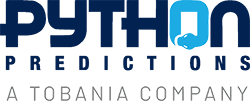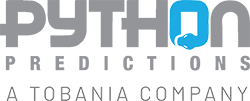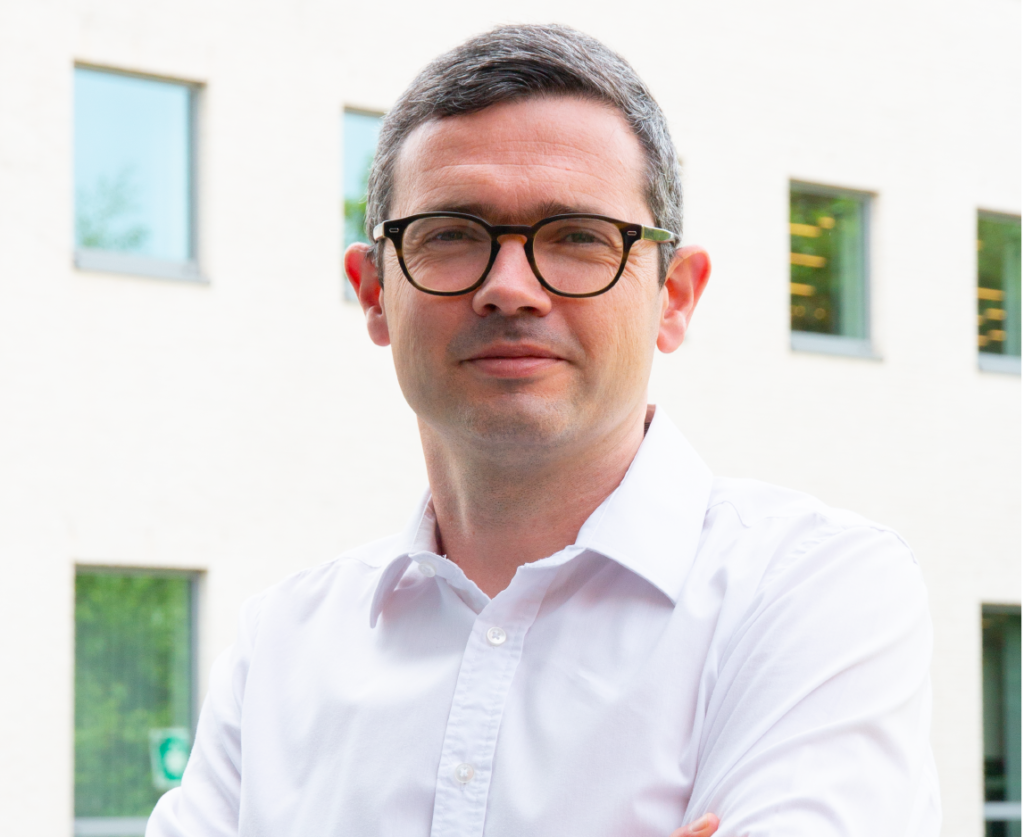In October our very first Data Fast Track kicked off. A 4-week on-boarding program to welcome three new high-potential team members.Our whole team collaborated to teach our new colleagues how modern organizations become data-driven and to help them develop essential technical, consulting, and business skills. This gave them the opportunity to get to know everyone in our organization, connect with their coach, and obtain a thorough understanding of our way of working. Finally, they practiced their newly acquired skills on a case created for their field of interest and are now well-prepared to take on client assignments.
Let’s give the word to Michaël, Patrick and Zakaria, to hear how they experienced the Data Fast Track.
Tell us about yourselves
Michaël: I studied Business Economics, which taught me how to think analytically. In my first job, at a food retail multinational, I took on the roles of controlling and marketing analyst, and gained international experience at their German and Italian departments. During my three years there, I became more and more convinced of the importance of data for making well-informed corporate decisions.
Patrick: I started my studies in business engineering at UCLouvain. I liked the field of study, but realized, after obtaining my bachelor’s degree, that I enjoyed the programming and statistical courses the most. I therefore decided to do a master’s degree in data science. Now, two years later, I am convinced this was the right decision. The field of data is incredibly broad and developing fast, so I am certain that I will not easily get bored.
Zakaria: After graduating in Business Economics from the Solvay Brussels School (ULB), I joined PwC as a Customs and International Trade Compliance consultant. I spent a large part of my almost four-year period there working on data analytics projects, but always felt a desire to further develop my data-related skills. I therefore decided to quit and enroll in an intensive Data Science bootcamp (at Le Wagon). Looking back, I wonder why I did not take this step earlier.
Why Python Predictions?
Michaël: I was looking for a company that would offer me the challenge of engaging in a variety of data consulting projects, as well as provide space for personal development. After a friend joined Python Predictions, I became interested in the company and their projects. When I heard about their open company culture, valuing a lot of feedback and bottom-up input, I realized how well-positioned the company is for the future. So after they announced the Data Fast Track, I did not hesitate to apply for this great opportunity.
Patrick: The most important thing for me as a newcomer in the professional world was to find an employer that gave me the opportunity to grow and learn. Another important criteria was the flat hierarchy and easy communication between colleagues. Python predictions offers all these things, and the Data Fast Track is a testament to that. I liked the idea of getting time to get to know everyone and understand how everything works while having workshops on topics that are important for future projects.
Zakaria: I first heard about Python Predictions on LinkedIn, when a classmate joined the company a couple of years ago. I started following Geert Verstraeten, one of the two founders, and read his high-quality posts throughout the years. By the time I was finishing my bootcamp, I knew Python Predictions had a strong reputation in Data Science, and as nothing happens by chance, right at that moment they were recruiting for the Data Fast Track. Not long after that, I could consider myself a proud PyTobian!
You just finished the Data Fast Track (DFT), what did you think of it?
Michaël: The DFT allows you to explore the company culture and learn how Python Predictions manages projects. It also teaches you the skills that every consultant needs, such as storytelling and presenting. I really enjoyed the variety of the sessions and how the organizers facilitated interactivity and open discussion.
Patrick: The DFT was a great experience. It allowed me to freshen up on things I learned during my studies, but also introduced me to things such as consulting skills, which are not typically part of data science curriculums. Thanks to the DFT, I got exposed to real world projects, which are obviously more complex than university assignments. I also enjoyed getting to know our colleagues better, as some of them hosted or participated in the workshops.
Zakaria: I can confidently say it was a tremendously positive onboarding experience. It started with two weeks packed with training sessions on all aspects of the job: sales, domain-specific workshops, consulting skills, … you name it. The great thing is that everybody, from the founders to the most junior people, hosted these sessions. It shows how considerate the team is with new joiners. It was also a good opportunity to meet almost all of my new colleagues, and most importantly discuss how they serve our clients. For those who will join later, I have one word for you: TIDO, TIDO, and TIDO!
What now, after the DFT?
Michaël: Every starter spends time with their coach to analyze which technical and business skills they need to further develop and how to do that. As my background is less technical, my first objective is to learn the basics of programming and familiarize myself with the software used in projects. I have the opportunity to practice on a test project before taking on real projects.
Patrick: After the DFT, I am waiting to get my first client project. This doesn’t mean I am just sitting waiting to get an e-mail. No, at Python Predictions, time ‘on the bench’ should be considered as development time. This means you can work on becoming better at what’s important for the future projects you want to take on.
Zakaria: After the first two weeks, it is DFT project time. The team developed a project that covers Data Engineering, Data Science, and Data Analytics. I am currently working on the latter aspect. It is a great way to apply the skills I will need for client project. One great thing about the DFT is that our colleagues support us along the way. In addition, before diving into the project, I had the opportunity to develop a tailor-made learning plan together with my coach, who also happens to be our Competence Center Lead. The great thing with Python Predictions is that there is no shortage of learning resources!
What do you hope to achieve in your first 100 days?
Michaël: I look forward to contributing to a successful client project and progressing on my learning curve. In addition, I hope to apply as much as possible from the things we learned during the DFT.
Patrick: I hope that in 100 days I will have successfully finished my first client project and will have had opportunities to hone my presentation skills, as I know there is some room for improvement there. I also hope to contribute to the Cobra Python package.
Zakaria: As I am in the Business Intelligence Competence Center, my goal is to obtain the Microsoft Power BI PL300 certification. Next to that, I aim to expand my SQL knowledge and get to know Tableau. Lastly, I like coding, so I will keep doing data analysis in Python.
Eager to know more?
Then definitely get in touch with Wouter. He will be happy to schedule a first (virtual) meeting to discuss all your possibilities.
Let’s get started!




